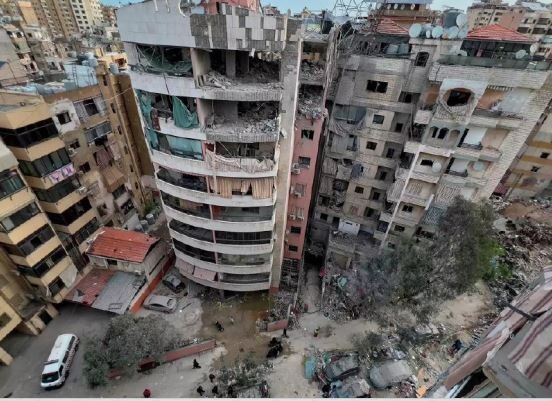Lebanon is caught between a rock and a hard place:
Either to forcibly disarm Hezbollah or resume aggression

South Lebanon —Following the recent bombing of two residential buildings in Beirut’s southern suburbs, fears have grown of Israeli adventurism that would increasingly violate the Lebanese sovereignty as part of a military-political process aimed at the final elimination of Hezbollah.
The US-led Israeli aggression on Lebanon continues to establish an equation based on Netanyahu’s recent statement that “Israel will strike everywhere in Lebanon against any threat. Anyone who has not yet understood the new situation in Lebanon has received a new example of our resolve.”
Obviously, the Israeli occupation entity is implementing what it claims is an agreement it signed with Washington last November, when the ceasefire agreement was signed in Lebanon, allowing it to attack what it claims is a threat to its security.
Over time, it became clear that this “agreement” allows Israel to bypass the executive framework of UN Resolution 1701.
This is evident in the fact that the five-member committee, that includes representatives from the US, France, Lebanon, Israel and the UN Interim Force in Lebanon (UNIFIL), to oversee the implementation of the resolution has stopped performing its assigned role, and even justified the attacks by accusing the Lebanese government and army of not doing enough to disarm the Hezbollah resistance movement “within a specific period of time” not only in south of the Litani River but in entire Lebanon.
In fact, Washington is indifferent to the risk of the collapse of the ceasefire agreement, believing that the pivotal developments in West Asia impose a change in the level of pressure to the point of demanding that Lebanon conduct negotiations with the Israeli enemy, under the pretext of reaching solutions to the five occupied hills, the fate of prisoners, and the disputed points along the Blue Line.
In this context, it is clear that Washington and Riyadh, which brought Jospeh Aoun and Nawaf Salam to the presidency and premiership, consider that the two men must respond quickly before implementing their agenda of reforms, confronting corruption, and reshaping power.
An informed source told the Tehran Times that Washington, Tel Aviv, and Riyadh agree that Hezbollah is incapable of remaking itself as an influential force in the region, but they are nonetheless concerned about what Hezbollah intends to do in the future.
To incite domestic political forces to confront Hezbollah, this assessment is popularized by claiming that resistance is futile, lest Hezbollah use the time to rebuild its capabilities and complicate the task of eliminating the resistance all over again.
No doubt, the internal confrontation will also help the municipal and parliamentary elections between 2025 and 2026, weakening Hezbollah’s representation in the state’s executive and legislative institutions.
After the formation of a unanimous Western and Arab public opinion that the Lebanese resistance should not be allowed to stand on its own feet again, the most important thing now is to revisit the American and Israeli experiences and scrutinize the reasons for their failure, i.e. firm resistance despite great sacrifices.
Caption: Damaged apartments building are seen after being struck earlier by an Israeli targeted attack in Dahiyeh, a southern suburb of Beirut, Lebanon, early Tuesday, April 1, 2025.
Hussein Malla/AP
Leave a Comment